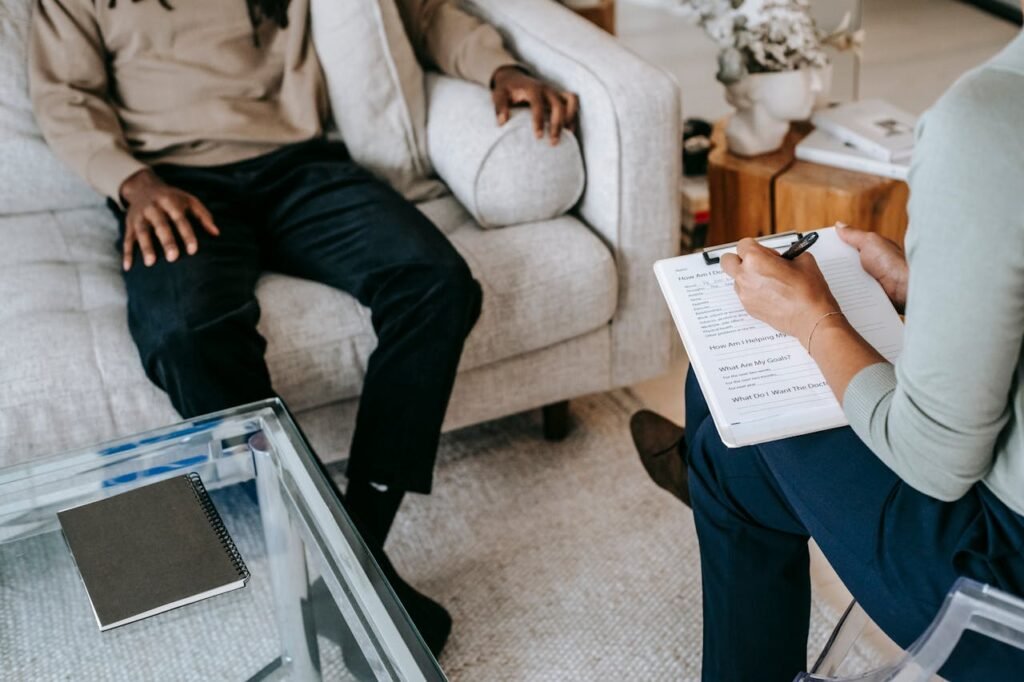Getting a prosthetic is a big step. It’s not just about replacing what was lost—it’s about rebuilding life. But visiting a clinic in a busy city can feel hard. The travel, the waiting, the crowds—it can be too much, especially for someone recovering from an amputation.
What if the clinic came to you instead?
That’s where home visit prosthetic services come in. In cities across India, this idea is slowly becoming real. Skilled professionals now visit homes to measure, fit, and fine-tune prosthetics—right from the comfort of your living room.
It’s changing lives quietly, with care and dignity. In this blog, we’ll explore what’s possible, how it works, who it helps, and how to get started. If you or someone you love needs a prosthetic but can’t travel far, this could be the answer you’ve been waiting for.
Let’s dive in.
Why Home Visit Prosthetic Services Matter
The Challenge of Travel for Patients
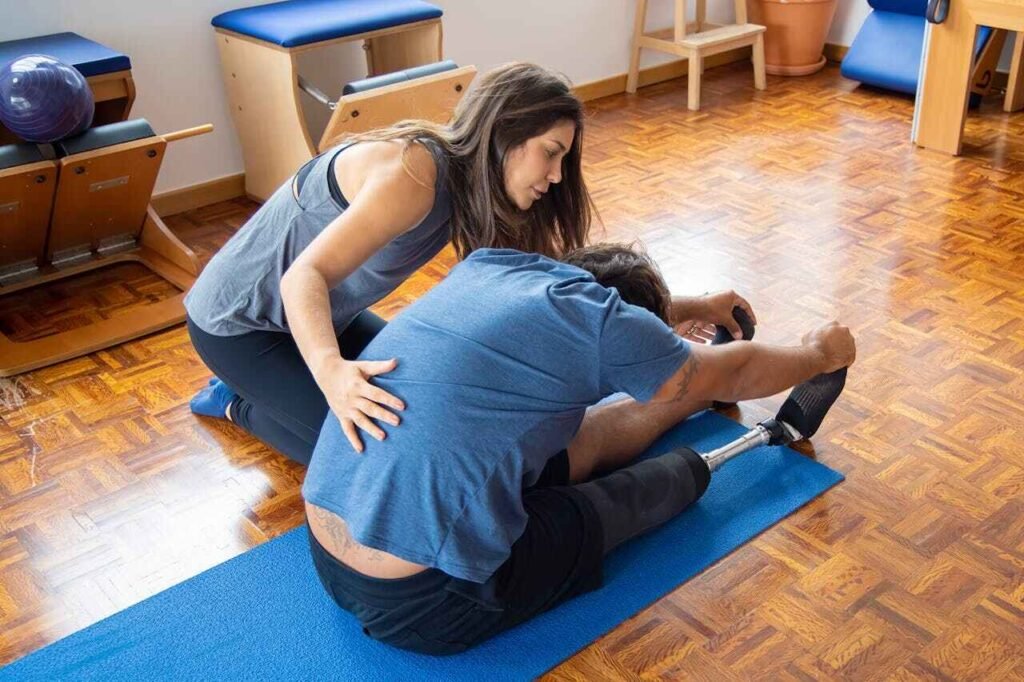
For many people who need prosthetics, just getting to a clinic is a struggle. Crowded buses, uneven roads, long train journeys—these aren’t easy when you’ve lost a limb.
Even getting in and out of a cab or walking across a large hospital building can feel overwhelming.
This is especially true for elderly people, recent amputees, or those with other health issues.
Traveling for care shouldn’t feel like another battle. And that’s why home visits are so important.
Emotional Ease and Privacy
A clinic can be a busy place. There are strangers around. Waiting rooms can feel cold. You may not feel like explaining your situation to people you’ve never met.
At home, it’s different.
You’re in a space you know. You’re surrounded by family. That comfort makes everything easier—from opening up about your needs to trying on your new prosthetic for the first time.
Home services give people the privacy and confidence they deserve.
Faster, More Personalized Care
When a prosthetic professional visits your home, they see how you live. They notice your flooring, furniture, and daily routine.
This helps them design a better fit for your life—not just your limb.
They might adjust the prosthetic differently if they know you climb stairs daily. Or they might suggest a grip that works better for your kitchen setup.
This kind of personal care is hard to get at a clinic.
What a Home Visit Looks Like
The First Step: Consultation Call
It usually begins with a phone call. You explain your situation—what kind of prosthetic you need, your medical history, and your daily challenges.
The clinic may ask for pictures or videos. This helps them understand your current condition before visiting.
At RoboBionics, we also explain how the home visit works, what tools we’ll bring, and how you can prepare.
It’s all about building trust before stepping into your home.
On-Site Assessment and Measurements
During the visit, a trained prosthetist or technician will examine your residual limb. They’ll check skin condition, muscle strength, and flexibility.
They’ll also take detailed measurements. This part is crucial for ensuring the prosthetic fits well.
You may be asked to do simple movements like lifting your arm or walking a few steps.
Everything is done gently, with patience and care.
Fitting, Testing, and Adjustments
Some clinics offer trial prosthetics on the first visit. Others may return with the device after custom-building it.
Either way, the next big step is fitting.
You’ll try on the prosthetic, move around with it, and give feedback. If anything feels tight, heavy, or off-balance, the technician will adjust it.
They’ll make sure you feel confident using it before they leave.
At RoboBionics, we also give a demo of how to maintain the device, charge it (if it’s electronic), and clean it.
Training and Support at Home
Wearing a prosthetic is not just about strapping it on. It’s about learning how to live with it.
That’s why good home visit services also include basic training. You might learn how to open a bottle, hold a spoon, or type on your phone using your new hand.
The goal is to help you feel independent again—step by step.
Support doesn’t end with the visit. You’ll get a number to call if you have questions later.
Sometimes, a follow-up home visit is also planned for fine-tuning.
Where These Services Are Available in India
Metro Cities Leading the Way
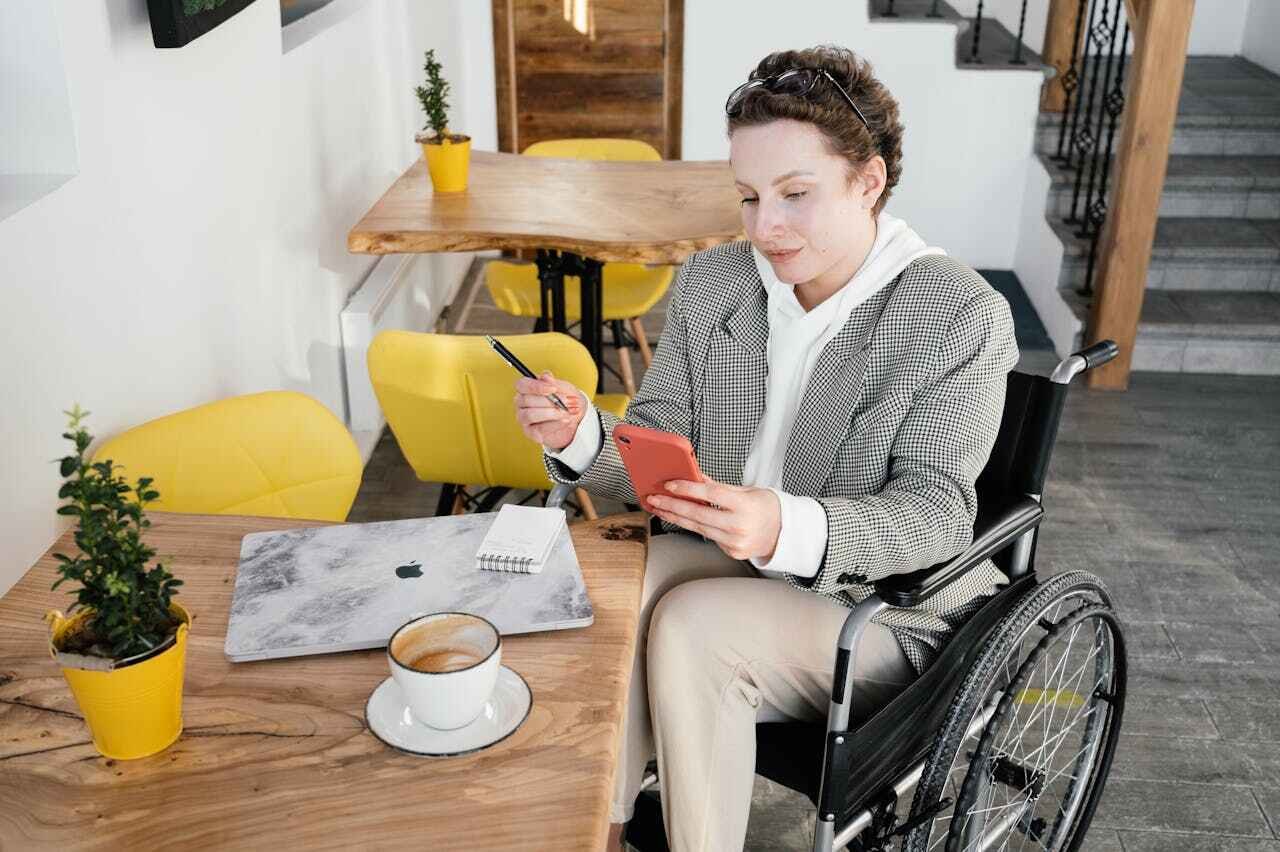
Home visit prosthetic services are growing fastest in cities like Mumbai, Delhi, Bengaluru, and Pune. These cities have better infrastructure, higher demand, and more trained professionals.
If you live in these areas, getting a home consultation is now easier than ever.
At RoboBionics, we’ve already served patients across several metros—and we’re expanding fast.
We believe convenience should be a part of care.
Tier 2 Cities Catching Up
Smaller cities like Nagpur, Indore, Lucknow, and Coimbatore are also beginning to offer home visits.
The demand is rising as awareness grows. People in these cities are now asking, “Can you come to us?”
And in many cases, the answer is yes.
We’re working with local partners and prosthetic centers to reach more homes in these areas.
Rural Access and Future Plans
Reaching rural areas is still a challenge—but it’s not impossible. In some cases, patients from villages come to a nearby town, where our team meets them in a friend or relative’s home.
It’s a small step, but a powerful one.
In the future, we hope to launch mobile prosthetic vans—fully equipped units that can bring care to even the most remote areas.
That’s our dream: prosthetic care without boundaries.
Types of Prosthetics Available for Home Visits
Myoelectric Hands and Arms
One of the most advanced options available today is the myoelectric prosthetic. These devices respond to your natural muscle signals.
With just a small movement or flex in your upper arm or stump, you can open, close, or rotate your prosthetic hand.
At RoboBionics, we offer the Grippy™ Bionic Hand for home fitting in select cities. It’s lightweight, battery-powered, and designed to feel like an extension of your own body.
We’ve made it simple to use. You don’t need to press buttons or tap screens. Your body does the talking.
And yes, we can show you how it works—all in your own home.
Mechanical Hands and Fingers
Not everyone needs or wants an electronic prosthetic. Some people prefer something simpler, with no wires or batteries.
That’s where mechanical prosthetics come in.
The Grippy Mech Hand and Grippy Mech Finger are perfect for users who need a durable, low-maintenance device. These are activated through simple movements like wrist or shoulder motion.
They’re great for people who work with their hands, live in humid areas, or just want something easy to use.
We offer these options during home visits as well, often with instant fittings or quick adjustments.
Partial Hand or Finger Solutions
Sometimes, a person doesn’t need a full hand. They may have lost just a few fingers—or a part of their palm.
For these cases, partial prosthetics can make a world of difference. Tasks like typing, holding a pen, or using a phone become possible again.
During home visits, we assess these needs very carefully. Every millimeter matters in a finger prosthetic. That’s why we take our time to measure and test the best fit.
And yes, these devices can be customized for right or left hand, and even color-matched for skin tone.
Pediatric Prosthetics
Children need special care. Their bodies grow, their needs change, and they live in a world of school, play, and dreams.
Pediatric prosthetics must be light, safe, and fun to use.
At RoboBionics, we offer child-friendly designs and fittings. During home visits, we talk to both the child and the parent. We want the little one to feel excited—not scared.
We also help parents understand how to care for the prosthetic and watch for changes as the child grows.
A smiling child with a working hand? That’s the best kind of success.
The Technology Behind At-Home Prosthetic Fittings
Portable Tools for Precision
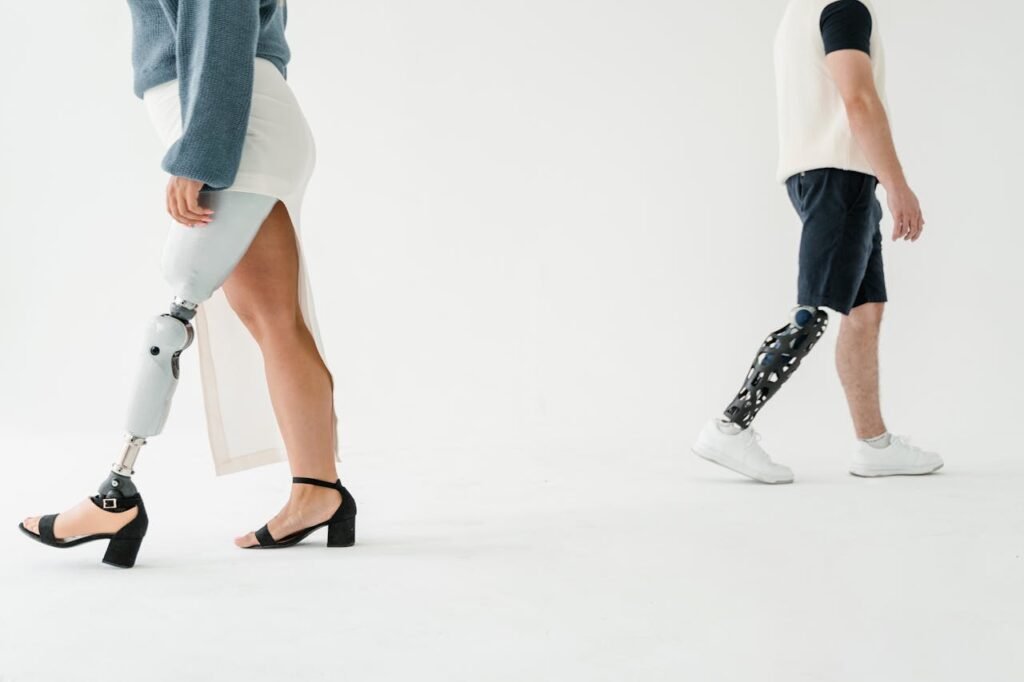
Gone are the days when prosthetic fittings needed heavy equipment or lab tools. Today’s technicians carry portable devices that do everything—from taking 3D measurements to printing alignment guides.
We use calipers, scanners, socket testing tools, and adjustable molds that can be fitted on the spot.
Even electronic hands like Grippy™ can be tested and demoed in your home, with no extra setup.
All we need is a clean, well-lit corner and a chair.
Real-Time Adjustments
During a clinic visit, if something feels off, you usually have to wait for another appointment to get it fixed. But in a home visit, we fix things then and there.
If the grip is too loose, the fit too tight, or the balance feels wrong—we adjust it immediately.
That means less waiting, less worry, and a better experience.
We also carry spare parts, extra sockets, and tools for reshaping the grip or wrist angle. It’s like bringing a mini-clinic into your living room.
Digital Support After the Visit
Home visits don’t end when we walk out the door.
Most modern prosthetics now come with digital support—through apps, video calls, or even remote diagnostics.
If your Grippy™ hand needs a software check, we can often guide you through it over a WhatsApp call.
If your mechanical finger starts to feel stiff, we can send a step-by-step video to fix it—or schedule another home visit.
Our aim is not just to deliver a device. It’s to stay connected, so you feel supported long after the visit.
Real People, Real Stories
Shalini from Pune: A Mother’s Comeback
Shalini lost her hand in an accident two years ago. As a mother of two young kids, she was heartbroken—not just by the loss, but by the idea that she couldn’t care for her children the way she used to.
Traveling to the clinic was hard. Her husband worked full-time, and the kids were too small to stay home alone.
Then she heard about our home visit services.
We visited her twice. First to assess, then to fit. Within a month, she had a Grippy™ Bionic Hand—and her life changed.
Today, she cooks, braids her daughter’s hair, and even packs tiffins with ease. “I feel like myself again,” she told us, smiling through tears.
Ramesh from Bengaluru: Getting Back to Work
Ramesh worked in a hardware shop, lifting tools and managing supplies. After an injury took his right hand, he lost not just a limb, but his job.
He couldn’t afford to miss more work for clinic visits.
So, we came to him.
We fitted him with a Grippy Mech Hand—tough, strong, and built for movement. After just one home visit and one follow-up, he was back behind the counter.
Now, he serves customers with pride and says, “Customers notice the hand, then forget about it. That’s how natural it feels.”
Nazma from Delhi: Dignity at Home
Nazma is 70. She lost her arm due to diabetes. Her son tried taking her to a clinic, but the crowds and long walks drained her.
So we brought the clinic to her.
She now uses a custom mechanical arm to do simple tasks—eat by herself, comb her hair, and even fold her own clothes.
“She wanted dignity,” her son told us. “And you gave it back to her.”
Scaling Home Visit Services: What Businesses Need to Know
Think Like the Patient, Not the Provider
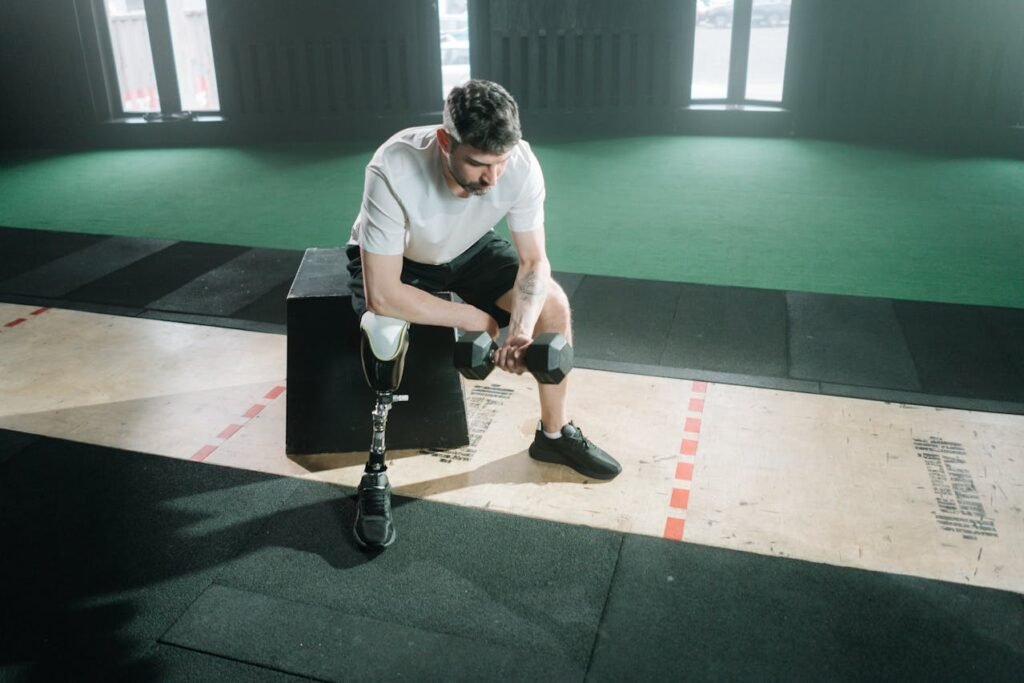
To build a successful home visit service, you must design it around the user—not your business model.
It’s easy to focus on logistics, margins, or technician schedules. But what truly matters is how the service fits into a patient’s life.
Does the appointment time work for their family?
Can your team explain things clearly in regional languages?
Is your technician trained not just in prosthetics, but also in empathy?
A home visit is an intimate service. It happens in someone’s personal space. Your staff is not just representing your brand—they’re becoming part of that family’s healing journey.
This human-centered mindset should drive everything—from your SOPs to your marketing tone.
Build Micro-Regional Hubs, Not Just City Offices
One mistake providers often make is trying to serve a large region from one city center. This leads to long travel times, inconsistent service, and stressed-out technicians.
Instead, think micro.
Create smaller service hubs within large metro areas. For example, instead of just “serving Mumbai,” create clusters—like Navi Mumbai, Thane, and South Mumbai—each with local technicians and standby support.
This improves response time and reduces travel fatigue.
You’ll also connect better with communities and build stronger local trust.
Train for Soft Skills, Not Just Fittings
Your best technician is not the one who fits a socket fastest—it’s the one who makes the patient feel safe.
Home visits are different from clinic work. There’s no front desk. No manager nearby. Your team is the face, voice, and spirit of your brand.
That’s why soft skills training is essential.
Roleplay real scenarios. Teach how to explain prosthetic use in simple language. Train them to spot non-verbal discomfort. Make follow-up calls part of their job, not a nice-to-have.
When patients feel cared for, they refer others. Word of mouth becomes your most powerful marketing tool.
Offer Tiered Packages Based on Need
Not every home visit has to be a full fitting. Create tiers—consult-only visits, trial fittings, adjustment check-ins, and full delivery visits.
Each tier should have a clear price, scope, and timeline. This helps set expectations and builds trust.
Also, make sure to offer flexible scheduling—weekends, evenings, or emergency options—especially for working users and caregivers.
Add value at every touchpoint. Even a WhatsApp check-in after a visit can build loyalty.
Use Digital Tools to Strengthen Offline Care
Even if your service is in-person, your follow-up can be digital.
Create simple mobile dashboards for users to track appointments, care tips, warranty timelines, or maintenance videos.
Send reminders for checkups. Offer one-click support requests. Add real patient stories as motivation inside the app.
This hybrid model keeps users engaged, reduces physical visits, and shows that you care long after the sale.
It also makes your business future-proof—and more scalable without losing the personal touch.
How to Book a Home Visit for Prosthetic Fitting
Reaching Out the Right Way
Booking a home visit should be easy. And at RoboBionics, it is.
You can start by visiting our website and filling out a simple form:
https://www.robobionics.in/bookdemo
You can also call or WhatsApp us. Just say where you’re located, what kind of help you need, and if you’ve used a prosthetic before.
Our care team will guide you step by step. They’ll help schedule your home visit, explain the process, and answer your questions—no matter how small.
We’re not in a hurry. We’re here to listen.
Preparing for the Visit
Once the date is set, we’ll tell you how to get ready.
You don’t need a hospital setup. Just a clean space, a well-lit corner, and a quiet hour or two.
Wear comfortable clothes. Have someone with you if you feel nervous. Keep your medical reports ready.
And most importantly—bring your questions. This is your time.
We’ll come with tools, trial devices, and a lot of heart.
Follow-Up and Next Steps
After the first visit, we may schedule a second one for fitting or training. Or we may offer video support, depending on what you need.
You’ll also receive printed or digital care guides, emergency contact info, and tips for daily use.
We stay with you on this journey—not just during visits, but long after.
What It Costs—and What It’s Worth
Pricing That Respects Your Budget
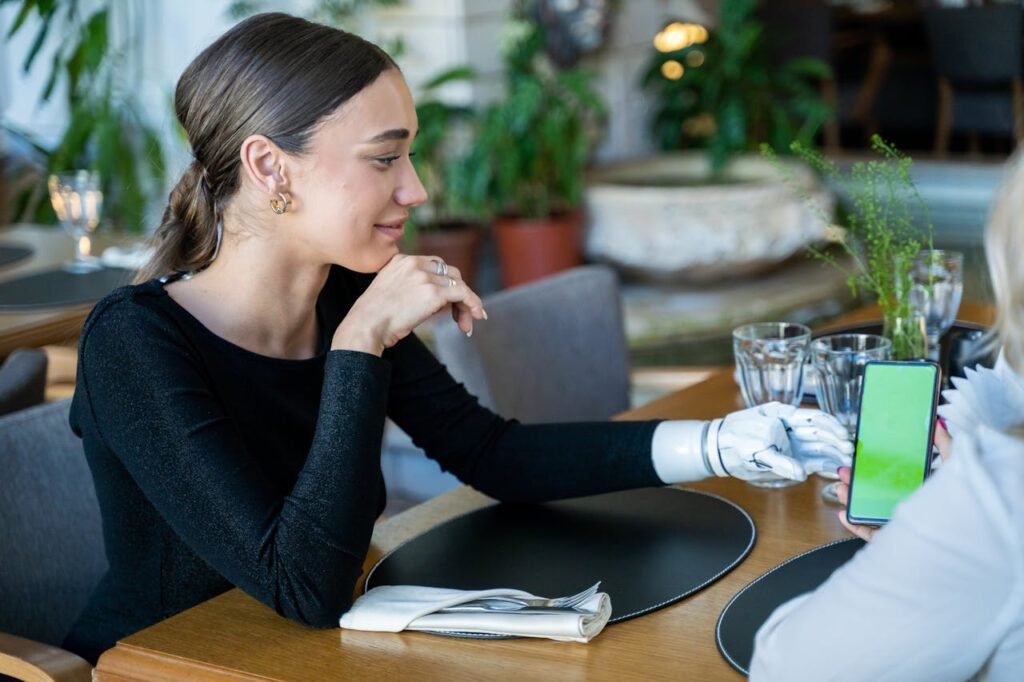
We know that prosthetic care can feel expensive. Especially when it’s high-tech or custom-made.
That’s why we’ve worked hard to keep things affordable. Our home visit fees are transparent and fair. No hidden charges.
And the devices—whether it’s a Grippy™ Bionic Hand or a Mech Finger—are priced way below most imported models.
Grippy™ starts at ₹2.15 lakh, while mechanical options are often below ₹1 lakh.
Compared to foreign prosthetics that cost over ₹10 lakh, this is a game-changer.
EMI and Payment Plans
Can’t pay all at once? No problem.
We offer easy EMI options, in partnership with trusted financial providers. You can pay in small parts—monthly or quarterly—without pressure.
If you’re eligible, we’ll help you apply for disability support schemes or CSR-backed funding too.
Our goal is simple: get the right prosthetic on the right person, at the right time.
Money should never stop you from moving forward.
Dos and Don’ts for Home-Based Prosthetic Care
What to Do
Do clean your prosthetic regularly, as advised.
Do follow up with your care team if something feels odd, loose, or painful.
Do practice using your device daily—even just a few minutes.
Do let your family be part of your journey. They’ll make it easier.
Do stay positive. Healing is not a straight line.
What Not to Do
Don’t skip appointments or delay your fitting.
Don’t try to fix or adjust your prosthetic yourself.
Don’t wear it for too long in the beginning—your skin needs time to adjust.
Don’t compare your journey with someone else’s. Every story is different.
And most of all, don’t give up.
The Future of Home-Based Prosthetic Care in India
More Cities, More Lives Touched

Home visit prosthetic services are just beginning in India. But the growth is real—and personal.
At RoboBionics, we started with one city. Now, we serve homes in multiple metros and tier 2 cities.
And we’re not stopping.
We’re building networks with local clinics, launching mobile care vans, and training more technicians every month.
Our dream? Every Indian—no matter where they live—should have access to world-class prosthetic care at home.
Smarter Tech, Simpler Lives
We’re also investing in smarter tools. AI-based grip controls, lighter materials, touch feedback—all being built here in India.
And we’re designing them for real lives. Not lab tests.
Devices that work in Indian kitchens. That hold chai glasses. That help with rangoli. That feel like a part of you.
And you’ll be able to try all this at home.
Care That Moves With You
Home care is not about staying still. It’s about moving better, with dignity and freedom.
And that’s what this service is all about.
Whether you’re a student, a worker, a parent, or a retiree—this is for you.
So when you’re ready, open the door. We’ll be there.
Final Thoughts: Bringing Hope Home
You don’t have to fight traffic, climb hospital stairs, or wait in long lines.
You don’t have to choose between comfort and care.
With home visit prosthetic services, you can heal where you feel safest. You can grow stronger in your own space.
At RoboBionics, we’re not just bringing prosthetics. We’re bringing back confidence, control, and joy.
One doorstep at a time.
If this sounds right for you or someone you love, let’s talk.
Schedule your home visit today:
https://www.robobionics.in/bookdemo
Because care doesn’t belong in a building. It belongs with people.



